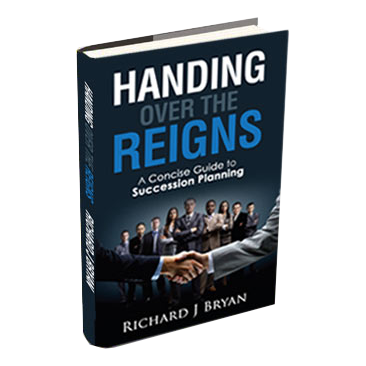In the midst of this global crisis that we’re all navigating together, most business owners and leaders are focused on basic survival. They’re exploring the nuances of a (suddenly) remote workforce, looking for creative ways to recoup unexpected losses—and, like me, pondering substantial operational pivots to adapt to an ever-expanding “distance marketplace.”
We’re collectively living in the moment, whilst worrying about a future that has never seemed more uncertain. So if the long view of corporate succession planning isn’t top of mind just now, you’re probably not alone! In fact, studies show that at any given time, less than 20% of businesses actually have a clear path to follow. And yet, on the other side of this critical coin, further research suggests that without a succession plan, 75% of businesses will fail.
Is your business in danger of contributing to this alarming statistic?
In my travels on the succession planning keynote speaker circuit, I often ask my clients this very question. While some admit that attending my keynote is their first step, others relax back into their seats, looking pleased with themselves. But next, when I asked them how long it took to draft their succession planning documents, they’re no longer looking quite so smug. “It’s all up here,” one company owner says, pointing to his head.
This chap is amongst the 49% of business owners who have thought about their succession plan, but haven’t gotten around to writing anything down. But from everything I’ve learned, both on the succession planning keynote speaker circuit and in my own family business, having “done some thinking” about your succession plan is virtually useless in the real world.
With corporate succession, preparedness MUST be part of the plan. Many business owners have a persistent blind spot when it comes to exit strategy for current company leadership. They treat succession planning like a “nice-to-have,” and continually allow it to take a back seat to the seemingly more pressing matters of the day. This is precisely why I have a thriving career as a succession planning keynote speaker!
Because even though your day-to-day business challenges might feel more immediate, few things are more certain than the fact that your current leader will one day depart. It’s going to happen, one way or another. Having a well-thought-out succession plan protects your business in the long term by laying out a clear framework of desired outcomes—along with a clearly defined process for making those desires successfully come to fruition.
A leader’s most important day in “office” is likely their last.
As somebody who spends much of his year on the succession planning keynote speaker circuit, I’ll be the first to tell you that present company excepted, succession planning is almost nobody’s favorite topic. Nobody wants to think about the end of any leadership era—least of all, the leader. In fact, if my father had become suddenly and gravely ill, I’m not at all sure he would have retired willingly.
After all, he had worked for the business for nearly half a century, and it was a big part of his own identity! But this is precisely why proactive succession planning is so critical. After 45 years of success, my father’s business legacy was very nearly destroyed—because he’d planned for every day but his last.
Succession in motion: consider this a “living will” for your leadership.
The best succession plan is always one where there is a gradual changing of the guard, from one generation to the next. It’s also a dynamic plan that evolves over time, rather than something that’s drafted and forgotten. Much as your personal will should be reviewed and adjusted over time, your business succession plan should be revisited to make sure that the planned successor is developing, and is still on track to take over the business—or that the business is growing as planned, and is on track to be sold at a certain time in the future.
A business succession is more than a one-time financial transaction—it’s a roadmap for maintaining family wealth that has been built up from years of hard work. And, depending on the size of the business, it may even require a team of advisors. An accountant, a commercial attorney, an estate planning attorney and a financial advisor are all good players to have on the team. Family-owned businesses may also benefit from an independent facilitator to help the family avoid conflict while making important long-term decisions.
The good news? If you’re amongst the 80% who haven’t yet done a thing, you should start right away—but since succession planning is a long and (ideally) proactive process, you don’t have to do it all at once. Not sure where to begin? My tactical guide, Handing over the Reigns, is a good place to start. You might also check out the related blog posts below.
Here’s to Your Business Success!
Richard J. Bryan
Related Topics:
Business Contingency Planning: What, Why + How


